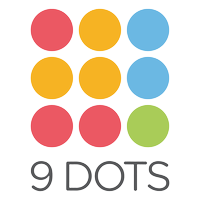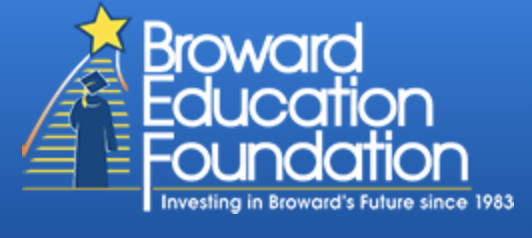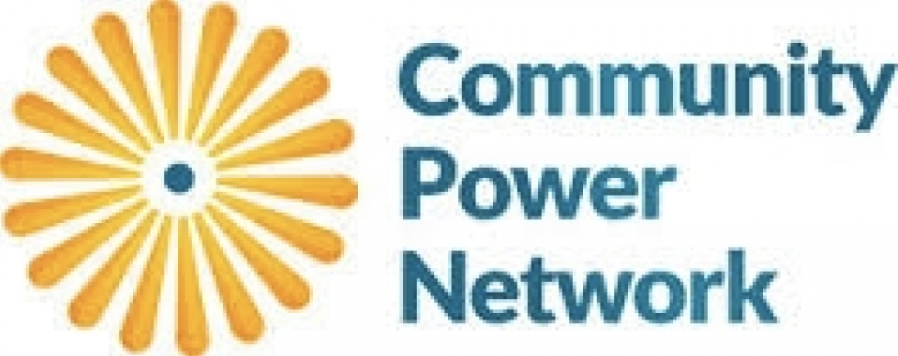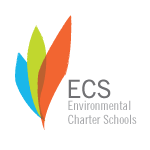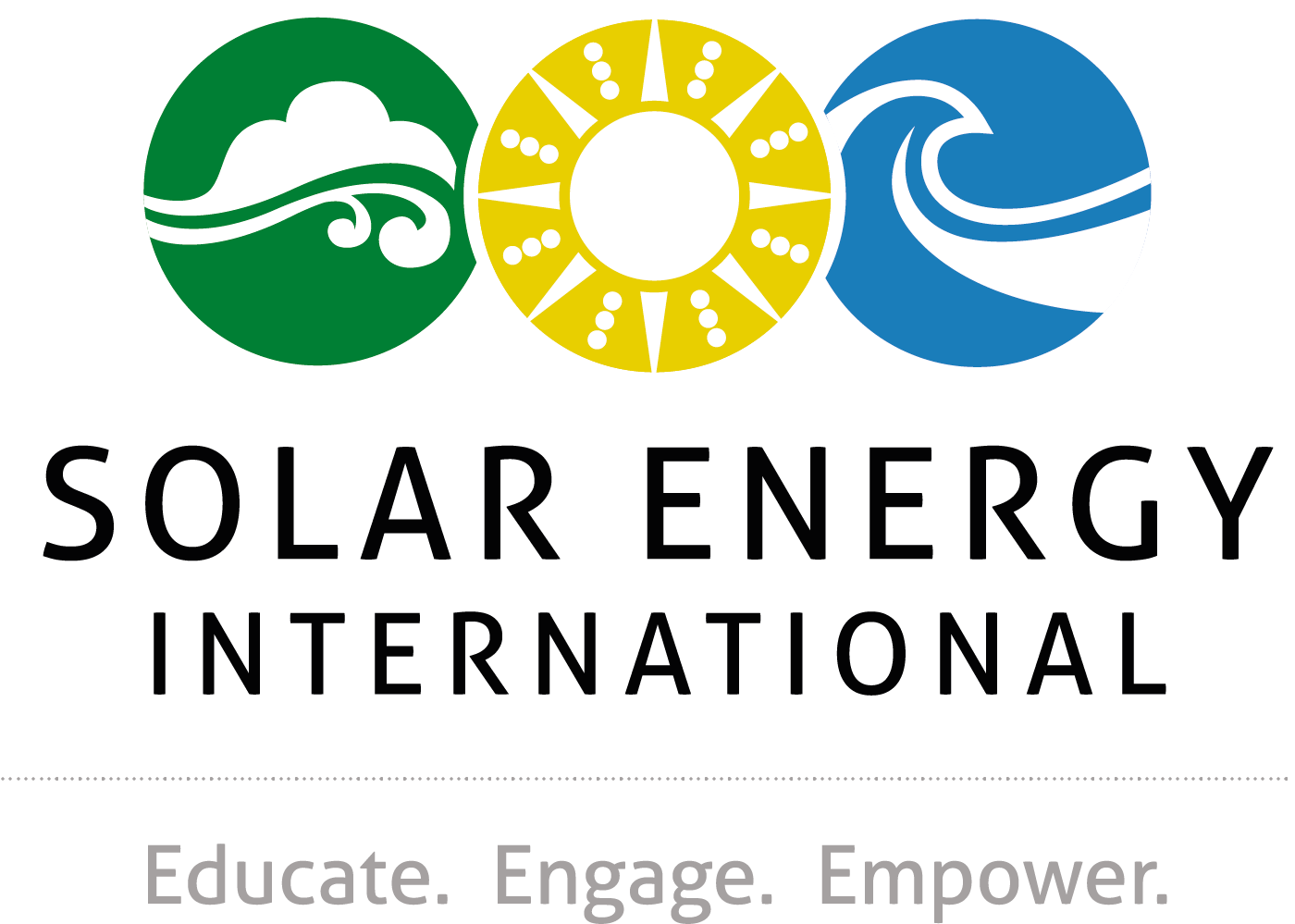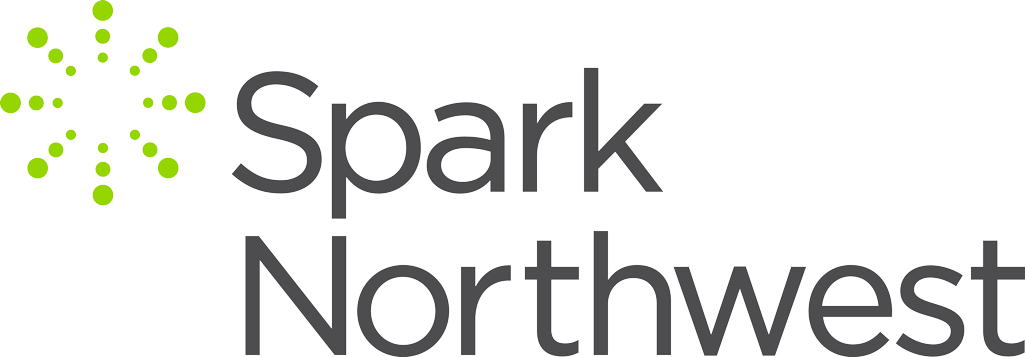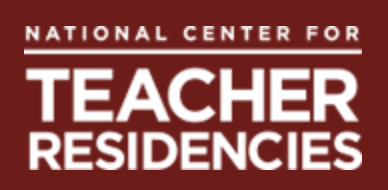Past Projects
Past Projects
Making STEM a Priority
From building video game controllers with conductive playdough to creating stop motion animation videos to building spaghetti and marshmallow towers, the students fortunate enough to land a coveted spot at 9 Dots Community Learning Center’s free after-school program in Los Angeles are developing a passion for STEM (academic disciplines of science, technology, engineering and math).
Driven by young Stanford graduates who traded comfortable corporate careers for community service that put their own STEM skills to task, 9 Dots opened its doors in 2011, and in doing so, opened the doors for underserved youth to a world that makes science, technology, engineering and math fun and exciting.
The organization was inspired by the 9 dots puzzle, a 3 x 3 grid that drives students to think outside of the box to solve challenges – the kind of innovative thinking that is at the foundation of 9 Dots’ teaching philosophy.
Based in Los Angeles, Calif., this nonprofit helps economically disadvantaged students – many of whom are minorities – develop the engineering, language and creative skills they need to become 21st century innovators. Unequal opportunities and lack of access have long impacted lower achievement in math and science, leaving underserved youth like these unprepared to pursue a career in STEM. Only 12 percent of the STEM workforce are currently African American or Latino.
This innovative program not only strengthens academic fundamentals through enrichment curriculum, but also creates original STEM projects that teach exploration, inquiry and innovation. Students build a newfound confidence and master the skills that prepare them to succeed in the careers that are among the fastest-growing and most lucrative occupations of the future – a future that is estimated to offer about 2.4 million new job opportunities by 2020.
For these underserved youth, dreams and aspirations can be realized. By choosing STEM, they choose a better future.
For more information: www.9dots.org
Zoo Project Introduces Sixth Graders to Project-Based, Maker-Education Model
Women comprise half of the total U.S. college-educated workforce, but only 29 percent of the science and engineering workforce. And, minority women comprise fewer than 1 in 10 employed scientists and engineers.
The Ann Richards School for Young Women Leaders (ARS), an all-girls, college-preparatory public school, is determined to change the narrative. As the only 6th-12th grade school in the Austin Independent School District where STEM is a rule and not an exception for every student, ARS is preparing today’s female students to become tomorrow’s STEM leaders.
Through rigorous and cross-disciplinary STEM curriculum, ARS inspires girls to build solutions for the 21st century. The All Points North Foundation grant supports “Modeling the Zoo Project” where all sixth graders research and create enrichment solutions for rescue animals at the Austin Zoo.
Students use the on-campus MakerSpace to develop their design and building skills using technology and power tools. The Zoo Project launches students into the project-based, Maker education model that is centered on collaborative, hands-on learning and is inherent throughout ARS.
ARS staff will also attend their first Project-Based Learning World Conference to learn and share best practices as they prepare curriculum and formalize the Maker model from idea generation through the final product. Throughout the year, an interactive display board will provide visual insights into the stages of the project, emphasizing “process over product.”
As a national leader and innovator in this space, ARS will incorporate teacher- and self-assessment of the process and growth in students’ 5Cs (collaboration, communication, creativity, critical thinking and community) for further assessment and replication.
For more information: www.annrichardsschool.org
Codes for Good Initiative Computes for Broward Middle Schools
Computer programming jobs are growing at twice the national average with the Bureau of Labor Statistics and National Science Foundation predicting there will be one million more jobs than students entering the field by 2020.
Middle schoolers in Broward County Public Schools (BCPS), however, have a jumpstart on becoming creators of technology and STEM career pathways, thanks to the District’s #BrowardCODES for social good initiative and its BURST (Broward Unifying Robotics, Science & Technology) program. This program provides a comprehensive middle grade curriculum addressing community problem solving using technology.
Spotlighted by the White House as a national model for expanding access to computer science in schools, more than 50,000 students have already been positively impacted by computer science at all BCPS K-12 schools.
All Points North Foundation’s grant will see an additional 30 middle schools offering extracurricular opportunities to participate in #BrowardCODES for social good.
BCPS became the first school district in the nation to partner with Code.org to increase access to computer science courses, curriculum, and resources, inside and outside the classroom. Since then, BCPS has been named a regional partner with Code.org, which provides additional funds master teacher trainers and computer science-trained teachers and the application of design thinking. The #BrowardCODES initiative broadens participation by hosting Saturday Code Clubs reaching out to underserved communities, holding teacher workshops, interactive family CodeFests, and a culminating apps challenge showcase that attracts the enthusiastic participation of industry professionals.
Students not only experience computer science on a screen, but bring it to reality through robotics, drones, 3D design, and apps, emphasizing empathy to solve real-world community problems through intergenerational collaboration.
For more information: www.browardedfoundation.org
Closing the Opportunity Gap Using Hands-on, Project-Based Learning Taught by Expert Mentors
Middle school is a critical developmental period and turning point in the lives of young students. For students at East Somerville Community School (ESCS), many of whom come from economically disadvantaged backgrounds, Citizen Schools is intent on setting these Massachusetts young people on a positive trajectory forward.
The Boston-based nonprofit organization has brought both rigor and relevance in its partnership approach with middle schools across the United States to expand the learning day for children in low-income communities. By tapping the reservoir of resources in the community, Citizen Schools helps to catalyze student growth through comprehensive academic support, college and career readiness activities, and real-world apprenticeships.
Apprenticeships guided by local STEM professionals will help 150 6th and 7th grade students at ESCS master 21st century skills like collaboration, teamwork, and problem solving, through project-based, hands-on learning opportunities. Students who might otherwise have a limited understanding of available career pathways to become better prepared to thrive in the “innovation economy”. For families, many of whom represent diverse cultures where English is a second language, Citizen Schools also serves as a welcoming access point and helps them navigate the school system. By semester’s end, educators, students, community and families come together for a public celebration where students teach back what they’ve learned in their apprenticeships at an event called WOW!
For 22 years, the Citizen Schools collaborative model has focused on the whole child, “educating children, strengthening communities” and instilling the belief that success is indeed attainable. At ESCS, Citizen Schools is closing the opportunity gap, and, with the support of corporate and community volunteers, is ensuring that students have the opportunity to dream big and envision their path to future success.
For more information: www.citizenschools.org
Reimagining the Learning Day, Connecting to the Future
A gateway city, Chelsea, MA suffers from a high school dropout rate triple that of the state average with its middle schools already struggling to meet the proficiency rates for the state.
By reimagining the learning day, Citizens Schools is intent on closing the opportunity and achievement gap for at-risk students at Chelsea’s Joseph Browne Middle School. The national non-profit is clear-eyed on its vision to provide an extra three hours a day of inspired, engaging experiences that connect learning to the future.
By focusing on the entire 7th grade (152 students), Citizen Schools capitalizes on a critical development period, effectively setting students on a trajectory to high school, college, career, and community leadership through its Expanded Learning Time (ELT) model.
At the heart is Citizen Schools’ signature apprenticeship programs. Passionate AmeriCorps members and aspiring educators are joined by community volunteers called “Citizen Teachers” to mentor high-need students through semester-long hands-on projects. These teachers and partner instructors inspire and introduce middle school students to new fields, and related careers. Over half of all apprenticeships are in science, technology, engineering, and math (STEM).
In addition to apprenticeships, Citizen Schools provides academic support in math or English Language Arts and helps students set goals and devise action plans. They also organize high school application support, college visits, and other field trips.
Over 20 years, the Citizen Schools ELT model has generated enthusiasm among educators and community leaders intent on “educating children, strengthening communities” and instilling the belief that success is indeed attainable.
For more information: www.citizenschools.org
Unleashing Solar Power, One Community at a Time
To some, the goal might seem lofty – making solar an accessible, affordable, and equitable distributed energy source on a massive scale across the country. Yet, some determined citizens are already engaged in developing community-based renewable energy at the local level, often in isolation, and often facing daunting challenges. As a leader in the community-based solar movement, Community Power Network (CPN) creates on-the-ground change through renewable energy projects and policy reform – one community at a time. A network of grassroots, local, state, and national organizations working to build and promote locally based renewable energy projects and policies, CPN believes that the energy transformation movement is taking root, bringing communities together for collaboration.
By close of 2015, CPN had recruited more than 5,500 solar co-op members, implemented 60 co-ops, and oversaw the installation of more than 1,000 solar systems, resulting in 6 mW of solar power through on-the-ground programs. Additionally, CPN has facilitated $18 million in solar investments, helping to create new jobs.
CPN’s ambitious education outreach builds awareness of distributed solar, amplifies success stories, shares best practices for deploying projects, and grows contagious support for community solar. Analysis and case studies on community solar projects provide citizens with resources on how to create positive change in their own communities. A monthly newsletter covers key issues, tips and tools in the community renewables space and shines a spotlight on innovative projects that can be replicated.
CPN will especially highlight the innovative work in states that have less developed solar markets and policies, including Florida, Ohio, and West Virginia. Most importantly, CPN communications will target all “practitioners” and citizens who have an interest in a future where every community participates in the financial benefits of solar energy diversification.
For more information: www.communitypowernetwork.com
An Energy Encore for Dell’Arte
For Dell’Arte International, the world is quite literally a stage. And, the critically acclaimed nonprofit theatrical organization brings that cultural stage to California where they have engendered the relationship between art and place, artist and community for 40 years.
Since opening its doors in 1975, the organization has been providing a unique blend of arts and community service that has cultivated strong ties between Dell’Arte and the town of Blue Lake – and other rural and culturally diverse towns in Northwest California. In a sense, the theatre has become a community epicenter – providing local arts initiatives and attracting visitors from around the world.
Now, committed as ever to the community’s preservation and growth, Dell’Arte is embarking on a solar energy project that will increase the theatre’s energy efficiency and utilize the region’s available solar power. By installing a 17kW solar generator, the theatre will offset between 50 and 70 percent of its electricity use and ultimately achieve a high level of energy independence – a strategic vision for the Blue Lake community and the larger state of California.
But Dell’Arte has an even loftier goal in mind. By investing in solar technology, the theatre hopes to bring solar awareness to its community and serve as a catalyst for area residents, businesses and other nonprofits. For rural towns like Blue Lake – where access to high technology is inconsistent – energy independence can reduce costs, increase efficiency, and lead to sustainable operations.
By shining a spotlight on solar power, Dell’Arte continues to lead by example, both on and off the stage, and protect an environment and community vital to the organization’s success.
For more information: www.dellarte.com
Aligning Teacher Instruction with NGSS to Ensure Student STEM Success
The next generation of middle school students have the opportunity to be true scientists, thanks to the Next Generation Science Standards (NGSS). NGSS not only teaches science content but helps develop students’ knowledge while focusing on evidence-based explanations and application.
An innovative network of free public schools serving more than 1,200 students in South Los Angeles County, Environmental Charter Schools is equipping its teachers with training and resources to integrate NGSS into interdisciplinary, project-based, and environmentally themed curriculum.
At Environmental Charter Middle School – Inglewood (ECMS-I), 360 students in grades 6 to 8 regularly engage in interdisciplinary learning and use the environment to engage, connect, and discover what it means to become stewards of their communities. Their campus and curriculum reflect environmental sustainability at every turn.
Building Teacher Capacity for Next Generation Science Standards enlists a seasoned Science Instructional Coach (SIC) to train teachers in the new standards and identify helpful resources and professional development opportunities including STEM-focused conferences. Beyond that, the aim is to drive toward a three-dimensional instructional shift to disciplinary core ideas, scientific and engineering practices, and crosscutting concepts to ensure student achievement. Outside the classroom, student interest in NGSS and STEM subjects is cultivated through STEM partnerships and school-based activities, such as the STEM Family Night and Earth Day event.
All Points North Foundation’s grant enables ECMS-I to not only transform its practice, based on innovative NGSS conceptual frameworks, deepen its understandings of science standards, and increase student science proficiency but inspire students to overcome community conditions and consider a STEM pathway for college and career.
For more information: www.ecsonline.org
Harnessing the Power of the Sun for the Sciencenter
Everybody Solar, a 501©3, believes that giving the gift of solar energy can help alleviate some of the economic burden borne by nonprofit organizations by significantly reducing electricity costs. By harnessing the growing power of solar energy, Everybody Solar helps nonprofits cut electricity costs so they can focus on what they do best – providing essential services to their in-need communities.
Through the Solar for the Sciencenter project, over 100,000 visitors to the museum in Ithaca, NY will learn how to improve ecological footprints in their communities through renewable energy.
This dynamic hands-on gallery – a learning magnet for elementary students and their families — inspires excitement for science through interactive exhibits and programs that engage, educate, and empower.
Another 1.5 million guests worldwide will also experience how technology harnesses energy from the sun thanks to traveling exhibitions and outreach programs.
The Solar for the Sciencenter project is expected to produce 177,000 kilowatt hours of electricity, and avert 150,000 pounds of C02 from entering the atmosphere over the first 10 years of its 25 year expected life. In the process, the Sciencenter will save over $1,700 per year on utility costs. That real-time reduction in the Sciencenter’s overhead costs will enable them to grow their free access programs which provide free memberships for low-income families.
The transformative experience, at the Sciencenter and in other deserving communities that Everybody Solar supports, inspires others to help make communities more sustainable. As Everybody Solar attests, everybody has a right to affordable energy and clean air.
For more information: www.everybodysolar.org
Solar for the Eugene Science Center
Everybody Solar, a 501(c)3, believes that giving the gift of solar energy can help alleviate some of the economic burdens borne by nonprofit organizations by significantly reducing electricity costs while simultaneously reducing their environmental impact. By harnessing the growing power of solar energy, Everybody Solar helps nonprofits cut electricity costs so they can focus on what they do best – provide essential services to their communities.
Through the Solar for the Eugene Science Center (ESC) project, over 36,000 visitors will learn about solar while exploring their new interactive solar exhibit and solar array.
Formerly known as the Science Factory, and under new leadership, the ESC has great ambitions to upgrade their facilities and bring new exhibits and program spaces through a new initiative. At the center of this effort is the new hands-on solar exhibit, and also a state-of-the-art 32.5 kW photovoltaic system. The solar array will improve the ESC’s carbon footprint by producing an estimated 380,000 kWh of electricity, averting over 625,000 lbs. of carbon dioxide from entering the atmosphere over the next 10 years. The electricity cost savings can then be diverted to their discounted access programs, educational exhibits, participatory activities, and planetarium shows.
The transformative experience at the Eugene Science Center inspires others to help make communities more sustainable. As Everybody Solar attests, everybody has a right to affordable energy and clean air.
For more information: www.everybodysolar.org
Bringing Solar Power and Solar Job Training Home to Rosebud Sioux Nation
Winters can be severe on the Rosebud Indian Reservation in Todd County, SD, with icy winds and temperatures regularly in the teens. These harsh conditions combined with aging, inefficient homes and heating systems drive up the cost of electric utility bills for the majority of Tribal members and the Tribe itself, exacerbating the economic struggles faced on a daily basis on the Reservation.
In its efforts to improve the standard of living for Tribal members, the Rosebud Tribal Utility Commission and the Housing Authority are looking at investing in renewable energy, and solar PV in particular, to bring down long-term electricity costs. The effort will save the community millions of dollars and help the Tribe realize its goal of gaining more control of its energy expenditures.
With support from All Points North Foundation, the tribe is partnering with GRID Alternatives, the nation’s largest nonprofit solar installer to install solar electric systems for low-income tribal families, targeting the highest need first. In the process, GRID is providing “classroom on the roof” training to tribal members interested in hands-on skills building in solar PV and increasing their employment opportunities in the growing solar jobs market.
This “triple bottom line” model of “People. Planet. Employment” is part of GRID’s larger effort to bring solar PV to scale on tribal lands throughout the United States through innovative partnerships. To date, communities in seven states have established solar PV as a sustainable economic development strategy for their tribes. And, GRID is confident that the Rosebud Sioux Tribe will set a precedent to becoming a scalable and sustainable model of solar for all of its homes.
Since its founding in 2001, GRID has stayed true to its simple vision not just for tribal lands but the nation’s underserved communities: free, clean electricity from the sun should be available to everyone.
For more information: www.gridalternatives.org
Inspiring Sustainability, Conservation, and Education
Tucked away at the end of a five-mile wilderness trek through the Blue Ridge Mountains stands Georgia’s only backcountry lodge, Len Foote Hike Inn. Showcasing green building techniques in a unique backcountry setting, Hike Inn leverages the Inn’s sustainable design and practices as a living teaching tool to guests and communities alike.
Geographically ideal for alternative energy, Georgia’s solar energy is a vastly underutilized resource with much of the population not exposed to its benefits.
Thus, the Hike Inn, the first to earn the coveted Gold LEED-EB certification in the southeastern United States, promotes awareness, knowledge, and support of the benefits of solar energy with intention.
Providing a unique educational experience, the Hike Inn promotes physical health, environmental awareness and stewardship, and hands on application of sustainability. From a small photovoltaic system and passive solar thermal water systems to the composting of food waste and recycling for waste diversion, the Hike Inn leads the way in sustainable operations for Georgia State Park facilities.
As a unique learning resource center, it continues to inspire environmental stewardship with its latest project, Above the Grid. This energy literacy project includes both installing a new photovoltaic solar system to increase solar electric power and improve sustainability operations, and promoting solar technology innovation through education outreach targeted to adults and youth. In 2017, the Hike Inn will install a new 53.72 kWh system, providing up to 69% of their electric energy needs from solar power, and promoting solar energy education and awareness in the process.
For more information: www.hike-inn.com
The Leelanau Community Cultural Center to Install PV Solar System to Stem Energy Costs and Protect the Future of this Cultural Landmark
For over 96 years the Old Art Building has been both a touchstone and a welcome home sign for the residents of Leland, Michigan and for those who come back every year to enjoy a variety of over 600 programs focused on education, arts and culture. Today, the Old Art Building is known as one of the oldest, continuous art centers in the state, where young and old can come together and learn how to dance, paint, or see a world class concert.
Since becoming a nonprofit in 1992, the nonprofit Leelanau Community Cultural Center (LCCC) has been administering these cultural programs and working on maintaining the Old Art Building. In order to mitigate the rising costs of energy and find a cleaner way to protect the future of this landmark, the LCCC will install a solar PV system thanks to the support of All Points North Foundation.
A real time monitoring display unit on the outside of the building will provide the public with information on energy consumption and savings, creating constant awareness about the benefits of solar energy. Local students will have the opportunity to be educated on PV energy, as the LCCC will coordinate on-site visits for both private and public area schools. In addition, LCCC will highlight the positives of solar energy through lectures and tours of the building, and by producing a flyer for the 16,000 visitors who come through the doors every year. A special celebration will also be held to commission this new solar system during a dedication ceremony, where local dignitaries, politicians, members and the public will be invited to attend.
While the mission of the LCCC is primarily to promote cultural enrichment programs and events, and provide a gathering place for the community, the new PV solar system guarantees that the Old Art Building will continue to be a significant part of Leelanau history for years to come.
For more information: www.oldartbuilding.com
Getting Schooled in Energy Conservation and Solar
It’s not your typical day in the classrooms along Colorado’s Front Range – students are actively involved in analyzing and reducing their school’s electricity usage through participation in the ReNew Our Schools Youth Engagement Program. Students and teachers can view electricity data from eGauge energy monitors, which provides instant feedback from any change they make to their school’s energy usage, such as turning off lights or unplugging computers.
This cultural shift in Colorado’s schools demonstrates that cost savings, energy efficiency, and environmental protection are all possible through intentional energy-saving actions.
In the latest ReNew Our Schools program – schools in Colorado’s Douglas County School District — located in one of the fastest growing counties in the country, are competing to see who can lower their energy footprint the most. The top performing schools win a solar array or solar charging station.
Students collaborate with community professionals who mentor these “energy superheroes.” Students sleuth ways to save energy at school and at home. Past competitions have averaged a 16% energy savings with some schools saving as much as 30%. Schools are provided curriculum and solar kits from Need.org to ensure that solar and energy education is not just a one-month lesson but a lifelong way of energy-conscious living. Additionally, the process brings new learnings to teachers and students, who see their efforts in this STEM-based education initiative turn into dramatic cost savings for schools.
The ReNew Our Schools’ energy competition has empowered thousands of K-12 students to become energy stewards who prioritize conservation for years to come.
For more information: www.conservationcenter.org/renew-our-schools
Through Its Opportunity Build Solar Training Program, Rising Sun Provides Entry To Careers In the Solar Field
For over 25 years, Rising Sun Center for Opportunity has been empowering individuals to create environmental and economic sustainability for themselves and their communities. Today, Rising Sun is a leading green training, employment, and residential efficiency organization in Northern California. Wanting to build upon their success preparing people for sustainable careers, and with increased solar employment demand, Rising Sun developed the Opportunity Build Solar training program.
Through a grant from All Points North Foundation, Rising Sun’s Solar training program will enable case management and job placement for 20 low-income individuals. This 12-month program will allow entry into solar field careers.
The training will include experience installing solar photovoltaic systems on the homes of low-income residents in partnership with GRID Alternatives, but also will explore other potential job opportunities within the solar industry including design, sales, and permitting. Opportunity Build graduates receive certificates recognized by the solar industry.
All Opportunity Build Solar participants are low income and have experienced roadblocks to consistent employment. Through this program, Rising Sun offers these individuals a pathway out of poverty through a career that offers livable wages and good benefits, while building the clean energy future we need.
Rising Sun adheres to four key values which will all play a role in this project: 1) belief in human potential: when people realize their potential, they can make a difference in their communities, 2) belief that economic, environmental, and social opportunities should be accessible to everyone, 3) belief that resource conservation is a shared responsibility, 4) commitment to achieving tangible results through environmental and social impact.
For more information: www.risingsunopp.org
Saturday Night Bath Concert Fund Makes Music Matter at LA Middle Schools
The seven-piece band is conducting a sound check as at-risk youth stroll into the gymnasium, slightly skeptical of the musicians 40 to 50 years their senior. But soon the sound of congas, trap drums, bass viol, guitars and harmonicas, saxophones and flutes flood the gym and students are captivated by the music.
Saturday Night Bath is not only entertaining but educating 150 middle school students in courtyards and classrooms in a Los Angeles school district where music programs often are shelved because of limited funds.
For Drew and Gompers (Los Angeles) and Dana (San Pedro) Middle Schools, Saturday Night Bath is determined to make music matter.
Since 1986, Saturday Night Bath has delivered 540 concerts in schools and detention facilities, connecting with over 37,000 at-risk youth through music. From Chuck Berry to Carlos Santana, each concert of American jazz and blues consists of pausing midway for Saturday Night Bath members to describe the origins and history of their musical instruments, its inventors, and snippets of famous contemporary artists.
The series of concerts and clinics include acoustical instrument tutorials and composition workshops. Saturday Night Bath artists provide one-on-one coaching on musical instruments and song selection whether rock & roll or “flow” rap, culminating with a student concert performance. Principals and teachers alike point to the positive impact music, like Saturday Night Bath’s performances, has made as a critical learning tool that keeps at-risk youth engaged.
For more information: www.saturdaynightbath.org
Middle School Teacher Training to Meet Next Generation Science Standards
The Next Generation Science Standards (NGSS) sets the science education bar for what students should know as they prepare for college, career, and citizenship. However, this potentially transformative vision for science education can achieve little without teacher training to support both mastery of new content areas and considerable shifts in instructional classroom practice to inquiry-based learning.
This challenge is all the more daunting for teachers working in socio-economically diverse middle schools in east San José, an area with a significant percentage of residents living in poverty.
In this community, science is marginalized amid intense pressure to improve test scores in reading and math – particularly in the absence of resources to support hands-on investigation.
An All Points North Foundation grant is helping to launch San José State University’s NGSS Implementation Collaborative (NIC) in partnership with the Silicon Valley Education Foundation (SVEF). This 12-month effort directly supports more than 20 local public middle school teachers and their 1,000 middle school students. The collaboration builds upon the successes of the university’s Bay Area Environmental STEM Institute, a year-round professional development program which has been serving teachers since 1990; and the Green Ninja Project, a 2014 winner of SVEF’s STEM Innovation Awards. This educational project inspires young people to learn how to fight climate change through social media and hands-on learning experiences by following the adventures of the climate action super hero Green Ninja.
A four-day NIC summer institute of learner-centered instruction for teachers will blend science concepts with pedagogy through investigation of the NGSS-aligned Story-Science-Solution, a middle school learning sequence centered on climate change. In-person and online follow-up throughout the academic year will support implementation of materials modeled during the summer institute, helping teachers embrace California’s required transition to NGSS.
For more information: www.sjsu.edu/towerfoundation
Solar Energy International Partners with the Red Cloud Renewable Energy Center to Increase Native American Solar Trainers
For almost 30 years Solar Energy International (SEI) has been empowering and educating people about sustainable practices. During this time, many technologies have been developed but SEI’s mission has remained the same – to provide technical training and expertise in renewable energy, as SEI envisions a world powered by solar energy.
SEI has worked with Red Cloud Renewable Energy Center (RCR) for over 20 years, and will partner with RCR on the “Train the Trainer” program to increase the numbers of Native American trainers, who will teach and manage Tribal community projects.
The idea behind this project is for SEI to provide training, equipment, curriculum, and execute co-teaching/mentorship to RCR. RCR will then have an increased capacity to offer and implement week long, hands-on solar electric lab classes to Native Americans.
Currently there are 567 federally recognized Native American and Alaskan Native Tribes in the U.S. Many in these communities suffer from high rates of poverty and unemployment. The Energy Information Administration estimates that 14 percent of households have no access to electricity, which is 10 times higher than the national average. Incidentally, the green job sector has grown in the past five years. The U.S. government has new data which shows that the solar installer will be the fastest-growing job in America over the next 10 years. Programs like ‘Train the Trainer’ provide opportunities to further increase these numbers, and allow employment, training and entrepreneurial start-ups to thrive and prosper while also increasing energy sovereignty for Tribal communities.
For more information: www.solarenergy.org
www.redcloudrenewable.org
From Classroom to Career
Imagine having a dream that one day you aspire to be an astronaut. A teacher. A ballet dancer. A doctor. A top chef. An architect. But every day you wake up from your dream only to find that reality hits and hits hard – a challenging home life, foregoing after-school sports to babysit a sibling whose diapers need changing, having to piece together dinner while the head of the single family household is juggling two jobs that lead late into the night. And you are the tender age of 11 or 12 at most.
Enter Spark, a unique program that makes meaningful matches between underserved middle school students at risk of dropping out, and local working professionals for a tailored, personalized apprenticeship that gives these youth a shot at success in high school and beyond.
From architecture to zoology, Spark connects students with positive role models who mentor them in career fields that align with their interests and build skills through hands-on activities and projects. In the 2013-14 school year alone, Spark increased enrollment by 50 percent to reach nearly 1,000 students across four metropolitan regions, building a bridge to a brighter future.
All Points North Foundation is pleased to continue its support for Spark Chicago and in 2013, added a grant to Spark San Francisco Bay Area. No doubt we have seen Spark become a life-changing milestone in the lives of youth in some of the most underserved neighborhoods across the country. From perhaps being on the brink of dropping out of school one day, these Spark students explore professions based on their interests and strengths. After 10 years and thousands of apprenticeships, the results speak for themselves. Spark students consistently gain a newfound confidence, essential life skills, positive relationships with caring professionals, and a graduation rate significantly above the national average.
Spark Northwest’s New Solarize Model to Improve Affordability for Homeowners
Like many high-cost metro areas, high housing costs in the Seattle metro area have put home ownership out of reach for moderate income workers, and with it, the benefits of rooftop solar. Through a new partnership with All Points North Foundation, Spark Northwest will help low to moderate income homeowners in the Homestead Community Land Trust go solar with Solarize the Land Trust.
Spark Northwest, a nonprofit organization founded in 2001, works at the local level to speed the region’s transition to affordable, community-controlled clean energy through renewable energy programs and policy reform in Washington and Oregon.
Spark Northwest’s Solarize program has to date educated almost 5,000 people and helped over 1,000 families and businesses go solar through a grassroots group purchase model.
Solarize the Land Trust is the first solar group purchase for a community land trust, which will provide affordable solar installations for Homestead’s income-qualified homeowners. A community land trust creates permanently affordable homeownership opportunities for low and moderate income residents. By combining a group purchase negotiation with low-interest financing and grants, Solarize the Land Trust will bring affordable solar to permanently affordable housing. Spark Northwest will work together with the Homestead to educate 200 people about adding solar to their homes, and to help six homeowners install solar with very little upfront cost. The project will be a model for other land trusts across the country to bring the benefits of solar to affordable homes, including reducing housing-related energy costs.
For more information: www.sparknorthwest.org
Urban Teacher Residency United (UTRU)
Urban districts across the nation continue to have an unmet need for highly effective teachers who have the knowledge and skills to improve student achievement.
Today, roughly 50 percent of all urban public school teachers nationwide leave their positions in less than three years. The desire to educate exists, but teachers aren’t always adequately prepared to make an immediate impact on kids.
Urban Teacher Residency United’s (UTRU) signature technical assistance program develops and supports highly effective teacher residency programs that focus on developing teachers to be successful in urban districts. Residency programs are the most comprehensive model of teacher preparation in the nation. Residencies play an increasingly important role in designing human capital strategies by creating a pathway that responds directly to the hiring needs of school districts. In addition, residencies provide career advancement for experienced teachers to act as mentors, while developing highly effective new teachers that are capable of impacting student achievement from the moment they enter the classroom as a teacher of record.
For more information: www.utrunited.org
All Points North Foundation provides grants for U.S.-based projects and initiatives that support our priorities: improving public middle school education and teacher training, and implementing effective solar programs and/or projects.
Have a U.S.-based project you’d like to discuss?


